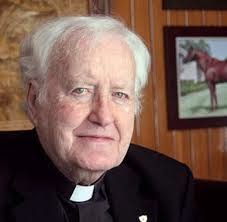St Columban’s Cemetery, Dalgan Park, Ireland [Photo: Fr Rolly Aniscal]
There are no
fixed readings for the Commemoration of All the Faithful Departed (All Souls’
Day). Below are links to selections of readings.
Readings (Jerusalem Bible: Australia, England & Wales,
India [optional], Ireland, New Zealand, Pakistan, Scotland, South
Africa)
In England and Wales this year the Solemnity of All Saints will be
celebrated on Sunday 2 November and All Souls’ Day will be observed on Monday 3
November.
Readings for
All Saints’ Day (England and Wales, Jerusalem Bible)
Fr Edward McNamara LC of Zenit responds here to a reader's query about the celebration this year of The Solemnity of All Saints and the Commemoration of the Faithful Departed. One can truthfully say that there are reasons for confusion!
Synaxis of All Saints, Unknown Icon Painter, early 17th century
Musei Vaticani, Vatican [Web Gallery of Art]
The following gospel is that for All Saints’ Day and may be used on
All Souls’ Day and in any Mass for the Dead.
Gospel Matthew 5:1-12 (New Revised Standard Version,
Catholic Edition, Canada)
When Jesus saw the crowds, he went up the mountain; and after he
sat down, his disciples came to him. Then he began
to speak, and taught them, saying:
“Blessed are the poor in spirit, for theirs is the kingdom of heaven.
“Blessed are those who mourn, for they will be comforted. “Blessed
are the meek, for they will inherit the earth.
“Blessed are those who hunger and thirst for righteousness, for they
will be filled.
“Blessed are the merciful, for they will receive mercy.
“Blessed are the pure in heart, for they will see God.
“Blessed are the peacemakers, for they will be called children of God. “Blessed
are those who are persecuted for righteousness’ sake, for theirs is the kingdom
of heaven.
“Blessed are you when people revile you and persecute you and utter all
kinds of evil against you falsely on my account. Rejoice and be glad,
for your reward is great in heaven, for in the same way they persecuted the
prophets who were before you.
The video above is a production of Jesuit Communications, Ateneo de Manila University, Loyola Heights, Quezon City, Philippines. The speaker is Luis Antionio Cardinal Tagle, Archbishop of Manila.
Antiphona ad communionem Communion Antiphon Cf. 4 Esdras [Ezra] 2:34-35
Lux ætérna lúceat eis, Dómine,
Let perpetual light shine upon them
cum Sanctis tuis in ætérnum, quia pius es.
with your Saints for ever, for you are merciful.
Réquiem ætérnam dona eis, Dómine,
Eternal rest grant unto them, O Lord,
et lux perpétua lúceat eis,
and let perpetual light shine upon them,
cum Sanctis tuis in ætérnum, quia pius es.
with your Siants for ever for you are merciful.
The first part above is the Communion Antiphon in the second Mass formulary for All Souls's Day. The whole is used as the Communion Antiphon in the first formularu for funeral Masses outside Easter time.



